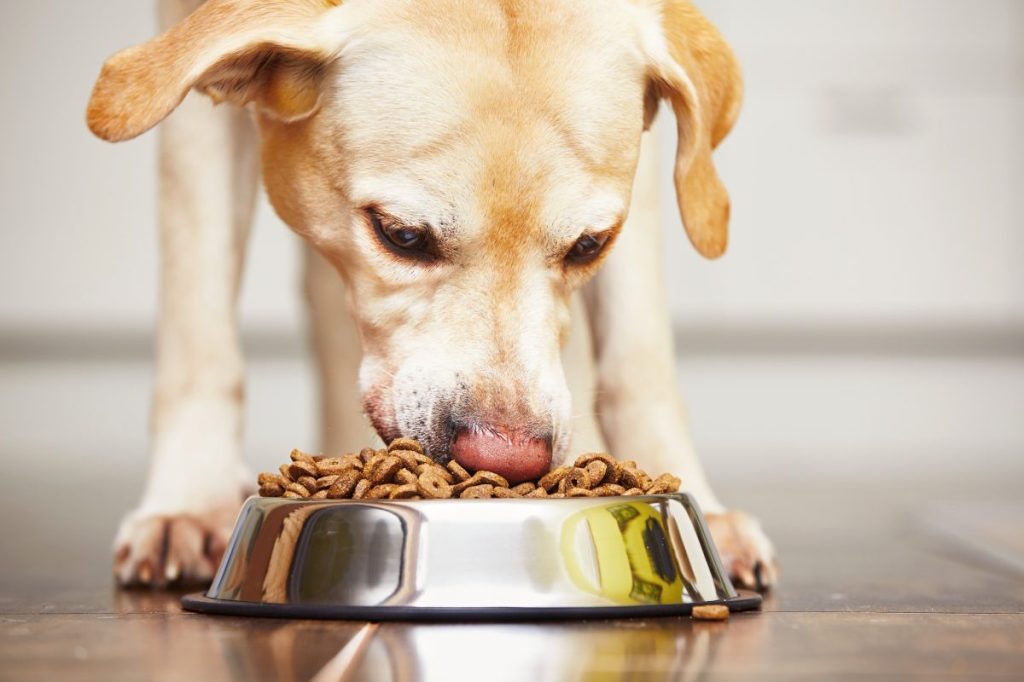The majority of dog owners feed nothing but processed foods to their pets. That percentage was close to 100 just a few years ago. Today, more dog parents — and some veterinarians — are looking to change this statistic. A lot of people don’t trust themselves to take on the responsibility of making sure their dogs get the right nutrients in a whole or raw food diet. Many veterinarians still discourage the idea, but people are waking up.
After all, you wouldn’t feed yourself — or your family — 100% processed foods. So, why is it the norm for dogs? There is a ton of information out there for people who are new to managing what goes on their pup’s plate. We’re going to examine why you should reduce the amount of processed foods in your dog’s diet and help you get started making healthy choices for your four-legged friend.
Reasons to reduce the amount of processed foods in your dog’s diet
Processed dog foods typically undergo extensive processing, which can strip them of their nutritional value. Here are some reasons why you should prioritize whole, unprocessed ingredients:
Essential Nutrients: Whole, unprocessed foods are rich in essential nutrients that support your dog’s overall health. These foods provide a balanced combination of proteins, carbohydrates, healthy fats, vitamins, and minerals that are vital for their well-being.
Ingredient Quality: Processed dog foods often contain low-quality ingredients, including meat by-products, fillers, and artificial additives. These ingredients lack the nutritional value and quality found in whole foods. By decreasing processed foods, you can ensure your dog receives high-quality, nutritious ingredients.
Allergies and Sensitivities: Processed foods may contain common allergens or ingredients that can trigger sensitivities in dogs. By opting for whole foods, you have better control over your dog’s diet and can determine their intolerances. Thusly, you can avoid potential allergens or ingredients that may not agree with their digestive system.
Benefits of changing your dog’s diet
Decreasing processed foods in your dog’s diet can have significant health benefits. Here are just a few:
Improved Digestive Health: Processed foods often contain additives, artificial flavors, and fillers that can disrupt a dog’s digestive system. By transitioning to a diet rich in whole foods, you can promote healthier digestion, reduce the risk of gastrointestinal issues, and ensure optimal nutrient absorption.
Weight Management: Processed foods tend to be high in calories and low in fiber, which can contribute to weight gain in dogs. A diet consisting of whole foods, including lean proteins, vegetables, and fruits, can help maintain a healthy weight for your furry friend.
Dental Health: Many processed foods are soft and lack the necessary texture to support dental health. Whole foods, such as raw vegetables or quality dental chews, can help naturally clean your dog’s teeth. These reducing the risk of tartar buildup and gum disease.
How to get started
Opting for whole, unprocessed foods — even in small quantities — offers numerous benefits for your dog’s overall health and well-being. By decreasing processed foods in their diet, you can provide them with the essential nutrients they need. You can also reduce their risk of allergies or sensitivities. Additionally, making the switch will improve your pup’s digestive health, ensure they maintain a healthy weight, and support their dental hygiene.
When selecting food for your dog, prioritize high-quality, natural ingredients. Consult with your veterinarian for personalized dietary recommendations. Learn more about the best people foods for dogs — from sweet potatoes to broccoli — and how to incorporate them into your dog’s meals. You can also read about why more dog owners are switching to human-grade dog food for their pups.








